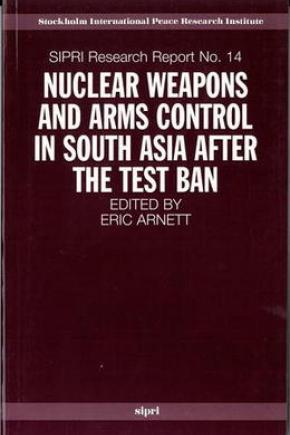Nuclear Weapons and Arms Control in South Asia after the Test Ban
As the nuclear weapon states continue to reduce their nuclear arsenals and international efforts to prevent the proliferation of nuclear weapons are reinvigorated, South Asia remains a unique region almost entirely unencumbered by nuclear arms control. Despite the recent popularity of the notion that nuclear deterrence is stabilizing the Indo-Pakistani conflict, there is good reason to believe that the risks of war and of the use of nuclear weapons are not fully appreciated. Nevertheless, the prospects for negotiated measures to improve the situation are not good because of the domestic politics on both sides. Nuclear Weapons and Arms Control in South Asia after the Test Ban sheds new light on the risks of the current stand-off, the hidden costs of the nuclear options, and the domestic sources of the region's inertia. The report brings together Indian, Pakistani and Chinese perspectives.
1. Nuclear weapons and arms control in South Asia after the test ban
Eric Arnett
2. Indian politics and arms control: Recent reversals and new reasons for optimism
Giri Deshingkar
3. Sino-Indian relations and nuclear arms control
Hua Han
4. Public opinion, democratic governance and the making of Pakistani nuclear policy
Samina Ahmed
5. Conventional arms transfers and nuclear stability in South Asia
Eric Arnett

